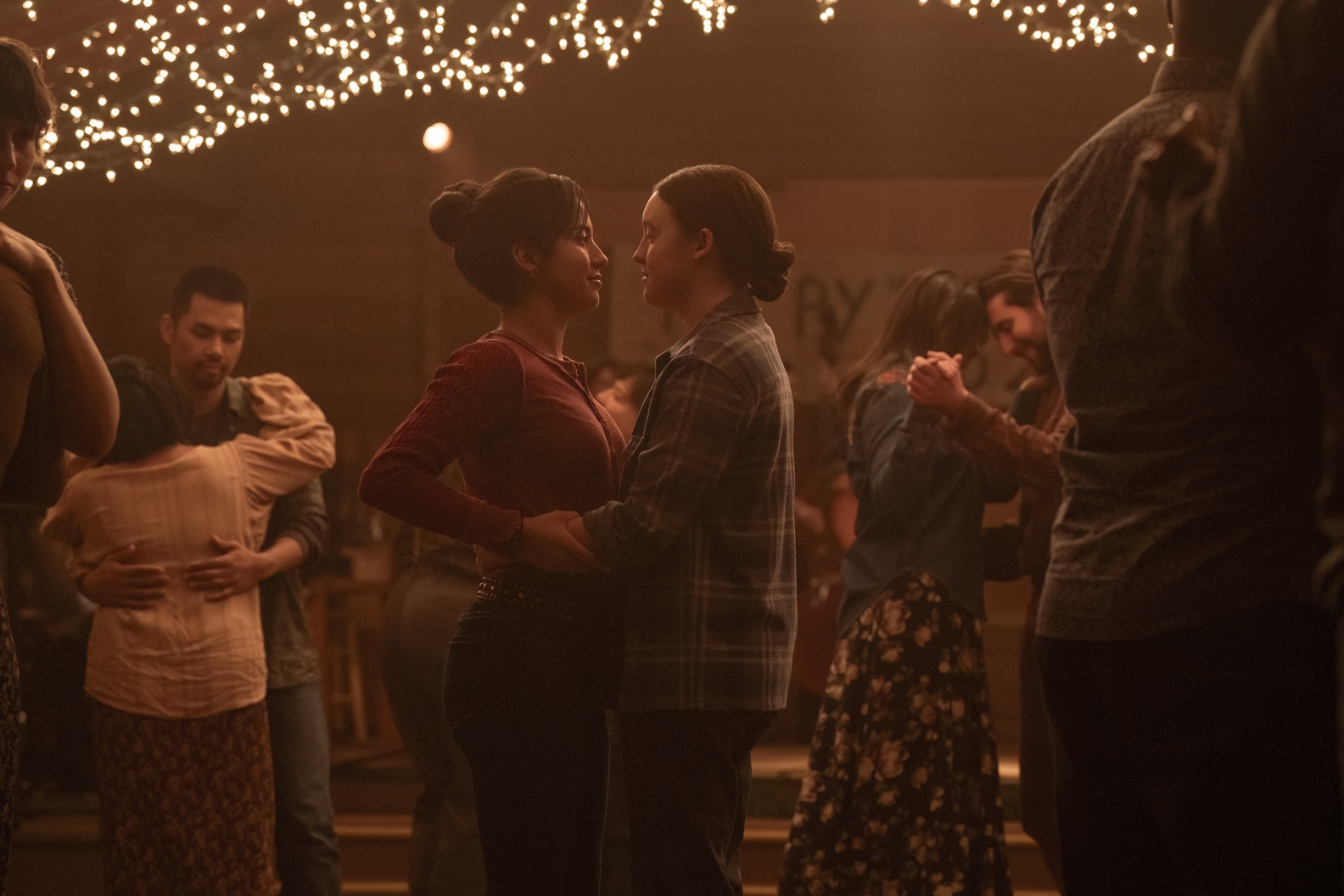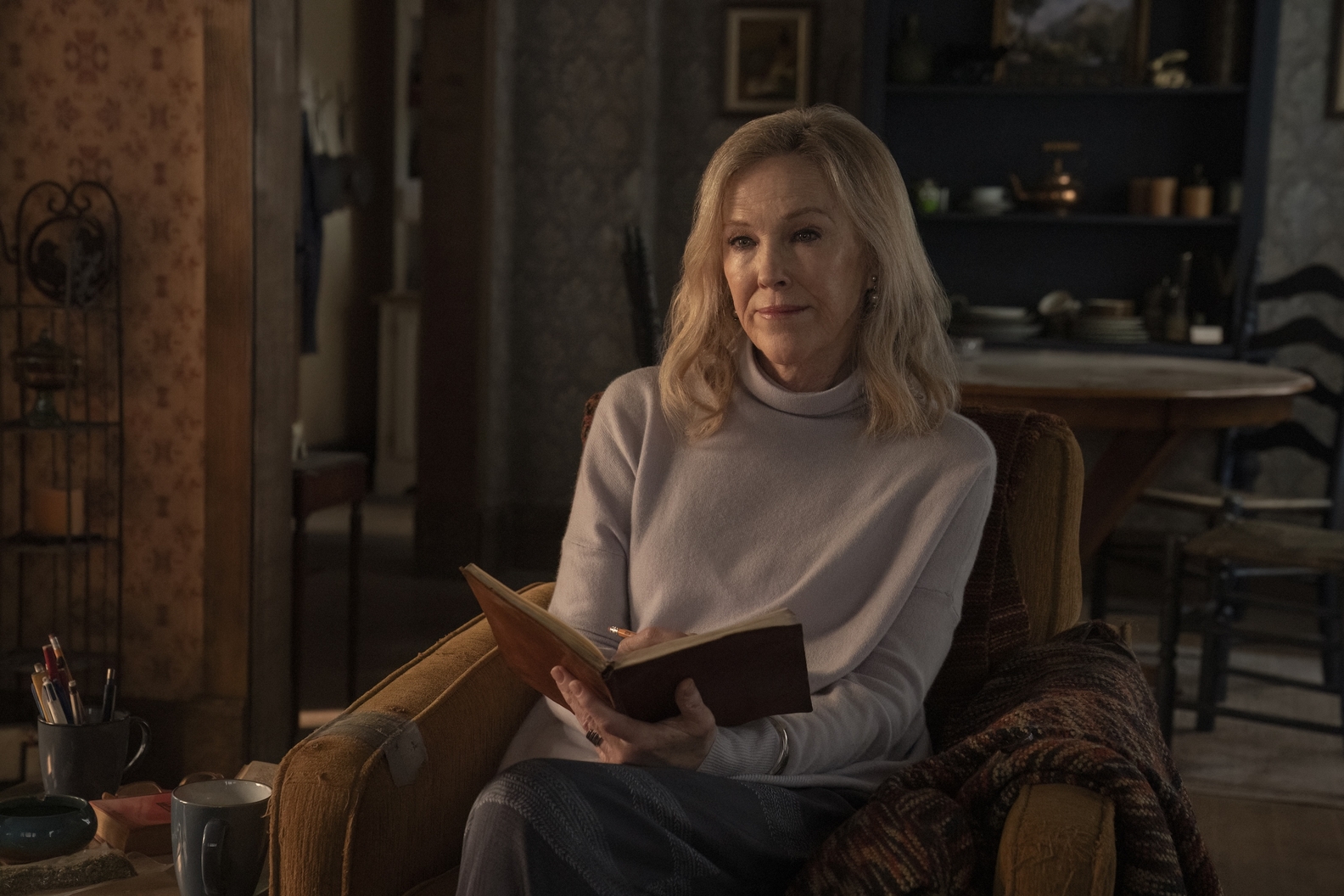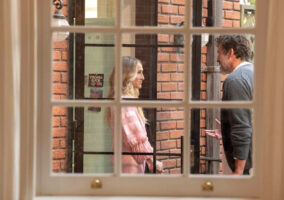
We don’t envy Craig Mazin and Neil Druckmann. With season 2 of The Last of Us, the two showrunners not only have to follow up a highly lauded, nearly perfect season of television by doing it again (something that almost never happens in television, relatively speaking), but they have to satisfy the fans of the game, the second installment of which came with its own set of controversies, while furthering a storyline that’s only going to get more depressing and nihilistic as it progresses. It remains to be seen if they’ll accomplish any of this, but the premiere episode of season two was a solid reintroduction to Joel and Ellie (Pedro Pascal and Bella Ramsey) and their new status quo in Jackson.
It was a sharply elegant choice to open the episode not with a recap of the previous season, but a re-airing of the scene that closed it; the scene that will matter to everything that happens next: Ellie asks Joel point blank if he’s telling her the truth about what happened in Salt Lake City and he point blank lies to her. They both know that it’s a lie but they move forward anyway, into a future where that lie will only fester. It’s now five years later and it’s more than clear that these two people, like so many others, find that they can’t build a life together based on a lie.
Jackson is a bustling, well-organized, growing community at this point. Joel has given up his smuggling and returned to work as a construction foreman while his sister-in-law Maria (Rutina Wesley) urges him to pick up the pace because housing is starting to become tight. He’s even seeing a therapist (Gail, played fabulously by Catherine O’Hara) to deal with what has to be an epic level of post-traumatic stress while the town gets ready to celebrate New Year’s Eve. It all feels exceedingly, almost unsettlingly normal. One of our favorite things about this show, as opposed to The Walking Dead and so many other zombie apocalypse stories is that it starts decades after the apocalypse and proceeds from the assumption that people will continue on, banding together, and trying to make it work, just as they’ve done throughout history. It’s apocalyptic with a tinge of optimism.

But it’s still the apocalypse and the show won’t let you forget that. Joel may be trying (albeit half-assedly) to exorcise his demons through therapy (paid for by weed) but Ellie, fully the badass she so badly wanted to become last season, is trying to kill them, one by one. She can obviously take care of herself at this point, showing herself to be incredibly, dangerously cocky on recon missions with her bestie and crush Dina (Isabela Merced). She’s moved into the garage of Joel’s house and they barely speak to each other, although po-faced Joel keeps trying to reconnect with her. The one thing he could offer her – protection – is the one thing she no longer needs, and we wonder if she’s such a hardass now because she wanted to cut Joel’s influence out of her life completely. As is the case with so many secrets, it’s driven them apart, they both know it, and neither of them will admit or talk about it. There’s plenty of emotional drama to be mined in this setting (we haven’t even gotten to Gail and her anger at Joel for killing her husband) but it’s still a zombie apocalypse tale, which means we need scenes of action and tension as well. The excruciatingly tense supermarket scene laid a lot of groundwork for what’s to come, showing how the town protects itself, how reckless Ellie’s become, how dangerous it would be if anyone in Jackson found out she’s immune, and most importantly, that the infected seem to be evolving a form of intelligence.
On New Year’s Eve, Ellie gets to kiss Dina, but one of the townspeople reacts badly to it (something we were happy to see, because refugee communities like this one would likely be rife with homophobia and because this culture stopped in 2003, before the current wave of queer acceptance) and Joel attacks him, which causes Ellie to humiliate him in front of the town. Jackson may seem idyllic in comparison to some of the other communities we’ve seen on this show, but it feels like a town that’s barely holding itself together. Is the implied cordyceps infestation in the town’s water pipes a metaphor for the rot at the heart of this community or is it foreshadowing the inevitable collapse to come? To quote the meme: Why not both?

Which brings us to the other scene that opened this episode: in the aftermath of the Salt Lake City attack, the remaining Fireflies bury their dead and try to piece together what happened. They know only that a man named Joel killed their people, that he was traveling with a child, and that she was rumored to be the cure to everything, although that last bit of information is apparently not to be spoken out loud. Their de facto leader Abby (Kaitlyn Dever) vows to find the man that killed her people and to return the favor, “Slowly.” Evidently, it took her five years to gather enough information to find him, but with her impending arrival in Jackson closing out the episode, there’s an overwhelming sense of disaster and tragedy looming over everything. We don’t know if Mazin (who directed this episode) and Druckmann (who co-wrote it with Mazin and co-executive producer Halley Wegryn Gross) are going to nail this season, but they did a fantastic job of re-establishing this world and getting us caught up on all of the characters and threats to come.
[Photo Credit: Liane Hentscher/HBO]
Roses by Reem Acra Spring 2026 Bridal Collection Next Post:
Wunmi Mosaku, Michael B. Jordan and Hailee Steinfeld at the SINNERS London Photo Call
Please review our Community Guidelines before posting a comment. Thank you!



